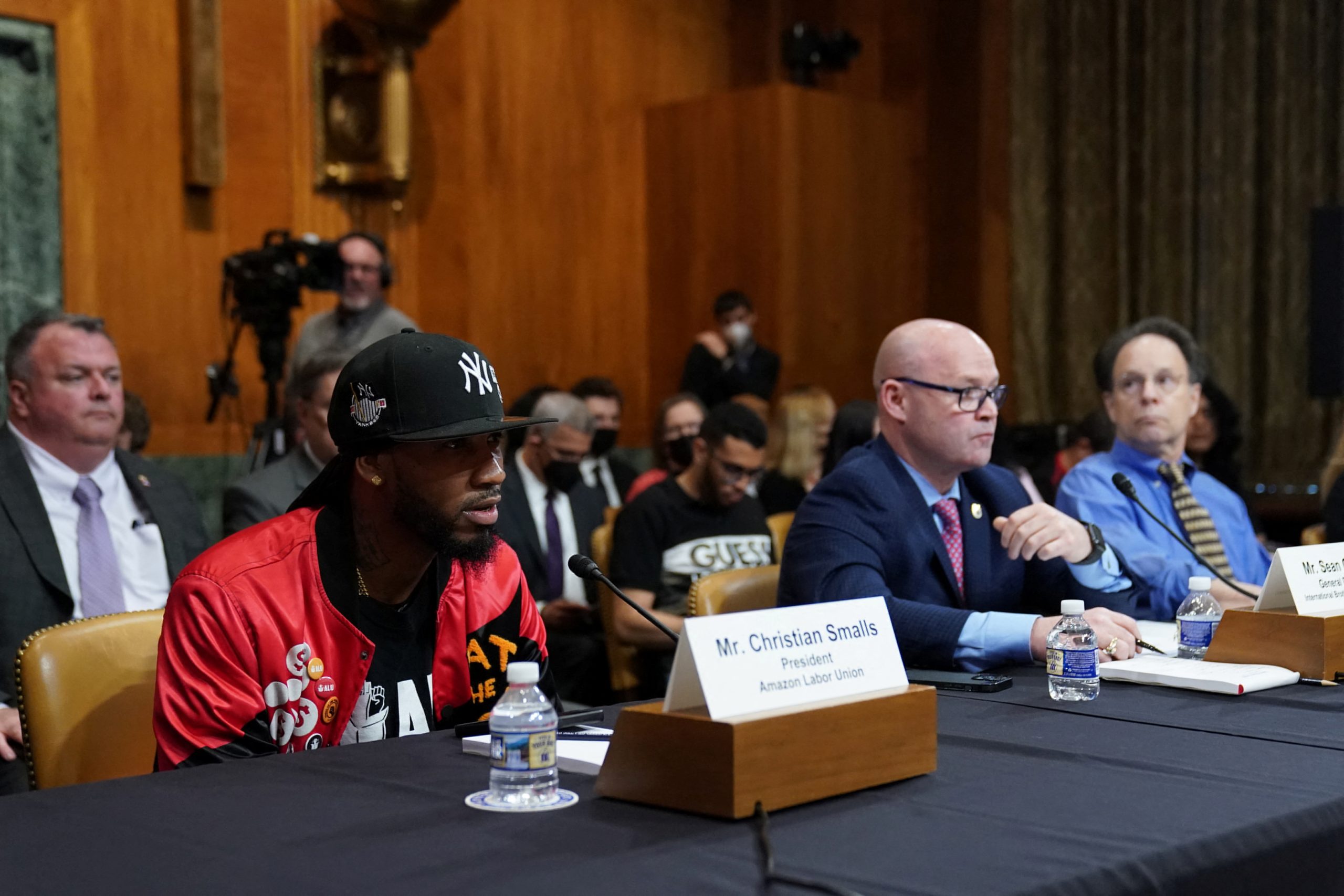
Willie R. Tubbs, FISM News
[elfsight_social_share_buttons id=”1″]
Though the company did not send an official representative, Amazon took center stage in a Senate Committee on the Budget meeting Thursday.
The meeting – called by committee chair Bernie Sanders (I-Vt.) and titled “Should Taxpayer Dollars Go to Companies that Violate Labor Laws?” – was contentious from the start.
Sanders expressed anger at Amazon founder Jeff Bezos, a man who Sanders has often criticized, for not accepting an invitation to attend, and spared no effort in labeling Amazon an anti-union and anti-worker corporation. Indeed, Amazon was the only company Sanders chose to address in the hearing.
“To date, there are currently 59 unfair labor cases against Amazon pending at the [National Labor Relations Board],” Sanders said in his opening statement. “Amazon is currently being sued by the NLRB to reinstate a worker who was illegally fired for organizing a union.
“Several current and former employees have alleged that Amazon has engaged in illegal harassment and discrimination based on race, gender, and sexual orientation … Amazon has already been penalized more than $75 million for breaking federal discrimination and labor laws.”
The hearing, the full video of which is available here, also featured testimony from Chris Smalls, the now-former Amazon employee who launched a union of Amazon workers at one of the company’s Staten Island locations. Smalls, like Sanders, portrayed working conditions inside Amazon as abysmal and criticized the company for both refusing to recognize and fighting to decertify the vote that created the union.
“I come to you with the belief that we cannot allow Amazon or any other employer to receive taxpayer money if they engage in illegal union-busting behavior and deny workers’ rights,” Smalls said in his opening statement. “We cannot provide federal contracts to these employers. We cannot allow them to receive taxpayer subsidies from our State and Local governments.”
While not present to defend itself, Amazon found an ally in Sen. Lindsey Graham (R-S.C.), who accused Sanders of using the hearing as a means of advancing the Vermont socialist’s “radical” agenda.
“This is an effort to get an outcome you want, using the United States Senate as your vehicle,” Graham said. “This is very dangerous. You can have oversight hearings all you like, but you’ve determined Amazon is a piece of crap company. That’s your political bias.”
Sanders, both in his remarks and on Twitter, told Graham that the conditions for Amazon workers were uniquely bad.
“If you can believe it, according to a New York Times investigation, Amazon has a 150% percent turnover rate,” Sanders said. “Workers come into the warehouses, they are worked as hard as humanly possible, and they leave. And a whole set of new workers come in to replace them. Is this really a business model that should be rewarded?”
It may be news to @LindseyGrahamSC, but Amazon has a 150% percent turnover rate. Workers come into the warehouses, they are worked as hard as humanly possible, and they leave, often crushed. Is this really a business model that should be rewarded with federal contracts? pic.twitter.com/l4zNc9YwYP
— Bernie Sanders (@SenSanders) May 6, 2022
Graham honed his argument not on the merits of the case against Amazon, but the method by which Sanders and pro-union activists were approaching the matter, and argued the hearing was tainted by bias against Amazon and a circumvention of established labor law and complaint procedures.
“One way you shouldn’t hold people accountable is you shouldn’t have a hearing where you make accusations,” Graham said during his question times. “There’s a legal system. You reach conclusions and you want a result that I think would do a lot of damage to the country. That’s what’s radical here.
“We’ve taken a single company. You’ve brought people making accusations. There’s a legal system in this country to complain about unfair labor practices. But what you’ve done here today is you’ve tried and convicted Amazon. You’ve taken anecdotal testimony and said … Amazon is the worst offender on the planet of the workplace.”
Graham asked Smalls if he had ever used any legal processes to file complaints against Amazon, to which Smalls agreed he had but that the process “was not working.”
When Graham responded, “That’s your opinion,” Smalls retorted that it was “a fact.”
Smalls also suggested Graham was too sympathetic to the ownership and managerial levels of business.
“It sounds like you were talking about more of the companies and the businesses in your speech,” Smalls said, “but you forgot that the people are the ones who make these companies operate and that we’re not protected.”
You can watch a clip from the exchange here:
